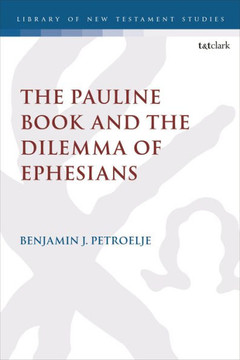
Createspace Independent Publishing Platform
Book Of Ephesians For Students
Product Code:
9781518821653
ISBN13:
9781518821653
Condition:
New
$12.63

Book Of Ephesians For Students
$12.63
The apostle Paul wrote this letter when he was in a prison in Rome. He wrote it to people in the town called Ephesus. This was about 61 years after the birth of Christ. At one time, Greek leaders had ruled Ephesus. Now the Romans ruled the city. It was the capital of the Roman region called Asia. It was a busy port and the centre of much trade. The temple of the goddess (female god) Diana (or Artemis) was there. The business people sold models of Diana's temple there. But Paul's preaching affected their trade. This caused confusion and trouble in the city (Acts 19:23-41). This letter is different from other letters by Paul. The main differences are: a)He does not give any special greetings; b)He does not send a message to any one particular person c)He does not talk about special problems. Paul wrote the letter to encourage the personal faith of the Christians. It gives teaching, prayers and great praises to God. It is about God's Son, Jesus Christ. He came to our world in order to put right all the things that had gone wrong. Paul makes clear that Christ is the head of the church. He will work out his purposes in and by the church. It is possible that Paul sent this letter to other churches in Asia. Then they too could read it. Paul's Letter to the Ephesians amounts to a short course in theology. Because of its majestic and exalted content, it has been hailed as "The Queen of the Epistles." Although it does not cover every theological topic, several central truths that are not explicitly stated are nevertheless assumed or implied. A firm theological foundation leads to spiritual stability, so that God's people will not be tossed here and there by every wind of doctrine. In a day when even professing Christians tolerate just about every "ism" there is - Catholicism, Mormonism, Liberalism, Postmodernism, Barthianism, Arminianism, Marxism, Existentialism, and so on - it is all the more important for us to insist on the biblical gospel, that it is God alone who, through Christ alone, sovereignly predestinates (1:3-14), regenerates (1:15-2:10), reconciles (2:11-20), sanctifies (4:1-6:9), and establishes (6:10-20) His people. This course aims to help beginning readers grasp the main theological themes in Paul's letter in a logical and coherent fashion. This purpose is consistent with the goal of Christian ministry as elucidated by Paul in Ephesians 4:11-16 - that is, to establish God's people by displaying and teaching God's grand design and sovereign grace in salvation, that it is the Father who has predetermined whom he would save and whom he would damn, that it is the Son who has redeemed the chosen ones, and that it is the Spirit who now applies God's blessings to the elect. Ephesians contains a number of long sentences packed with clauses that are in turn packed with theological meaning, so that many translations have broken these long sentences into several shorter ones.
| Author: Jeff Van Wyk |
| Publisher: CreateSpace Independent Publishing Platform |
| Publication Date: Jan 22, 2016 |
| Number of Pages: 172 pages |
| Language: English |
| Binding: Paperback |
| ISBN-10: 1518821650 |
| ISBN-13: 9781518821653 |





